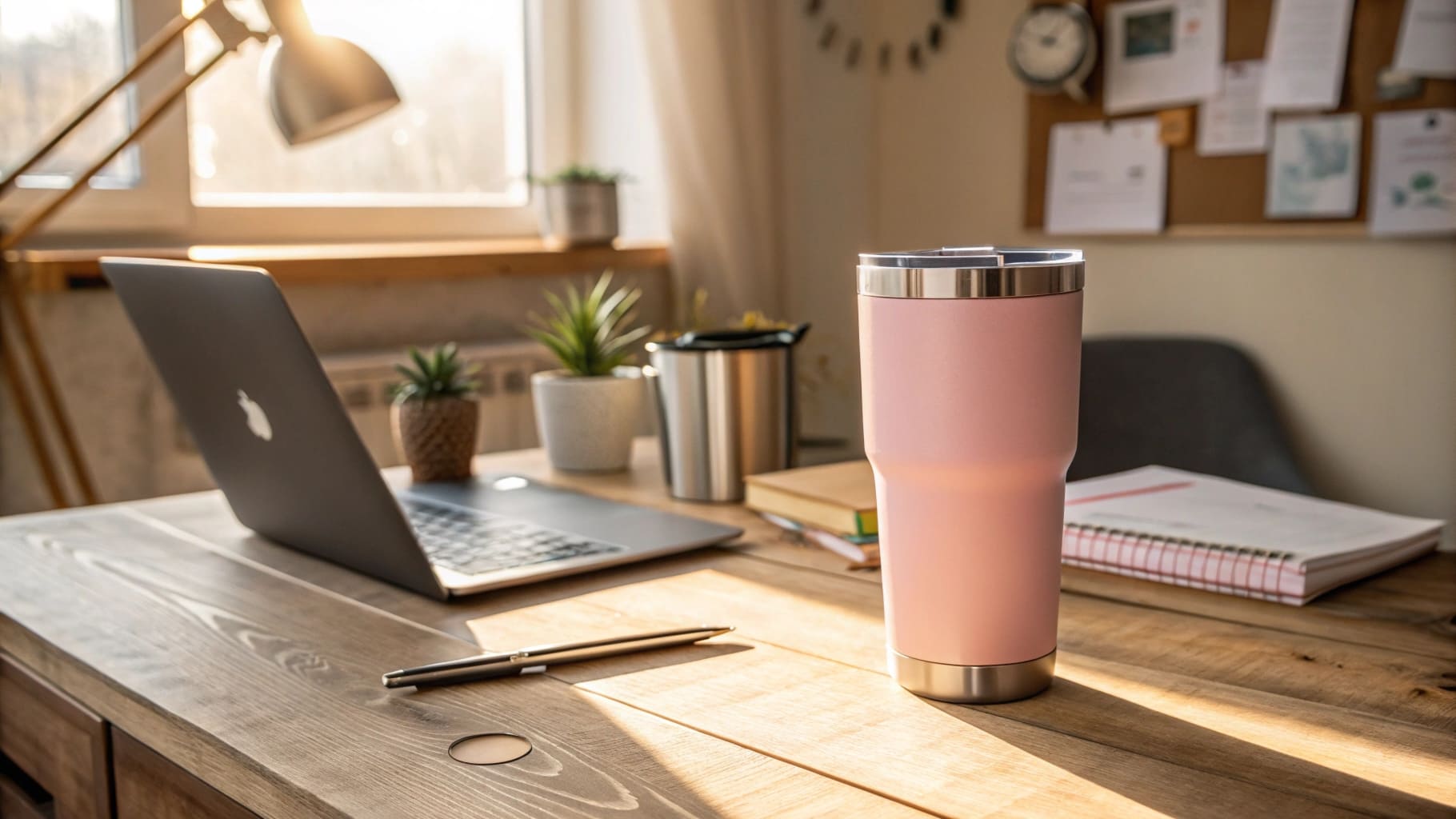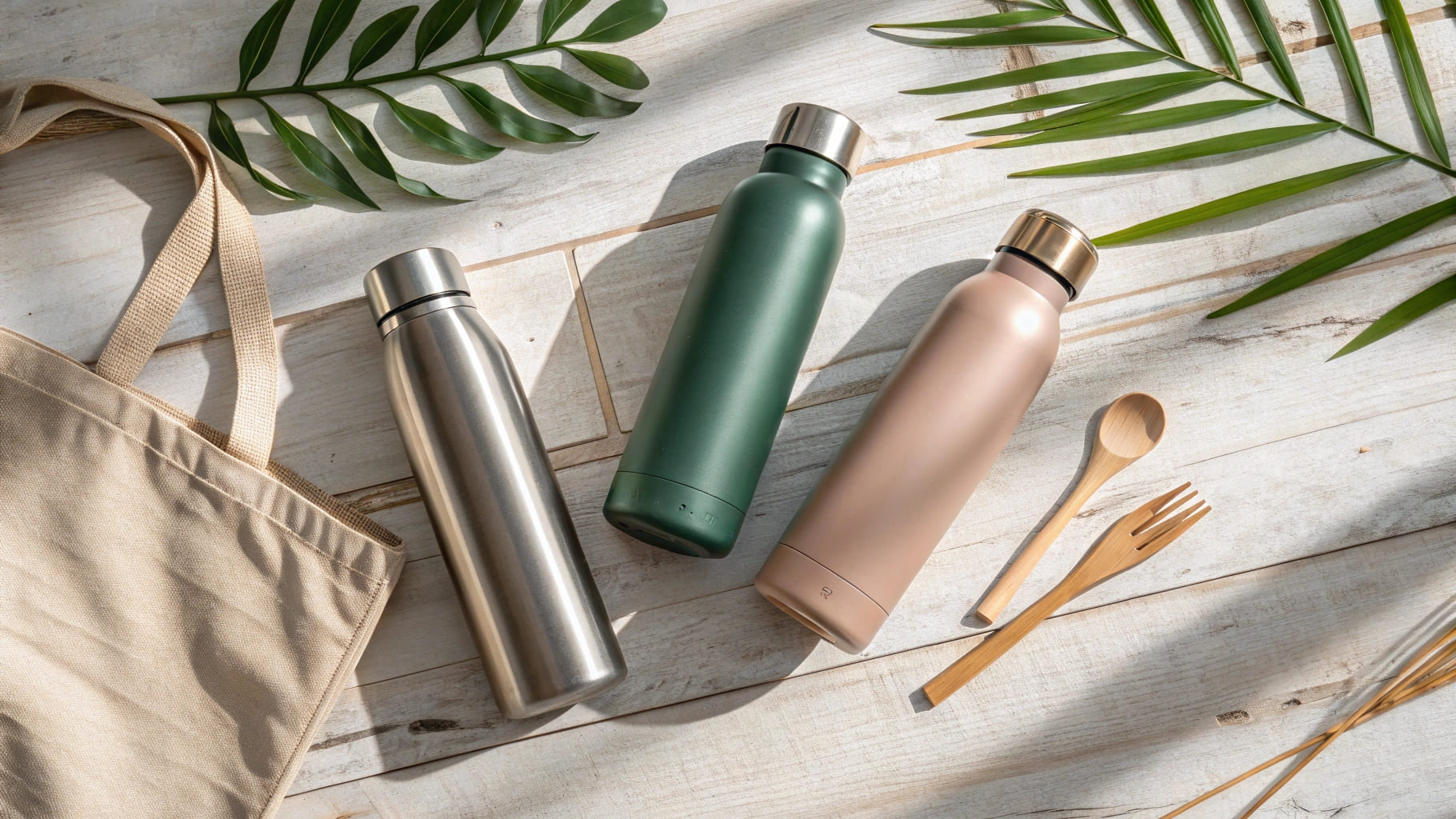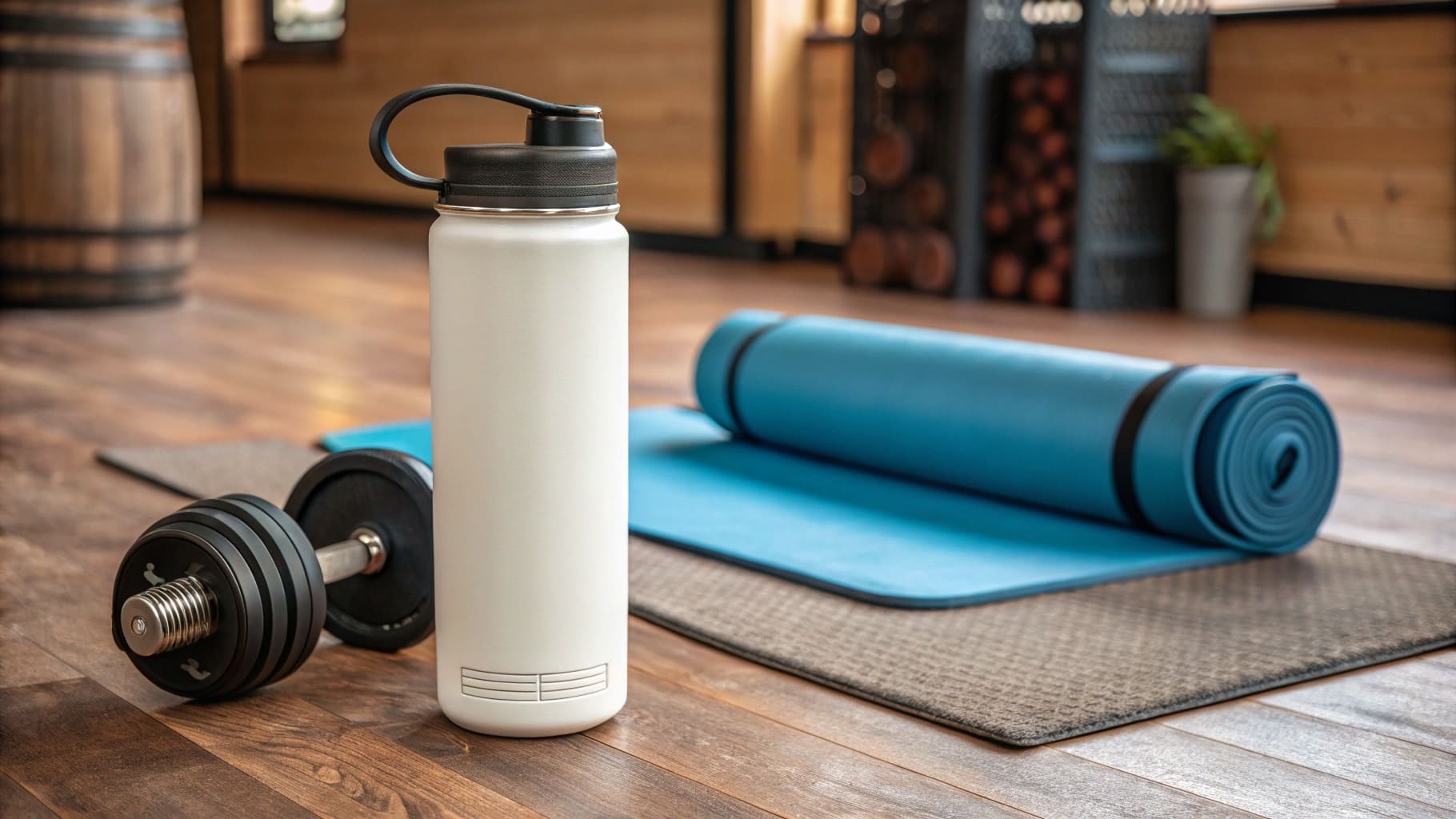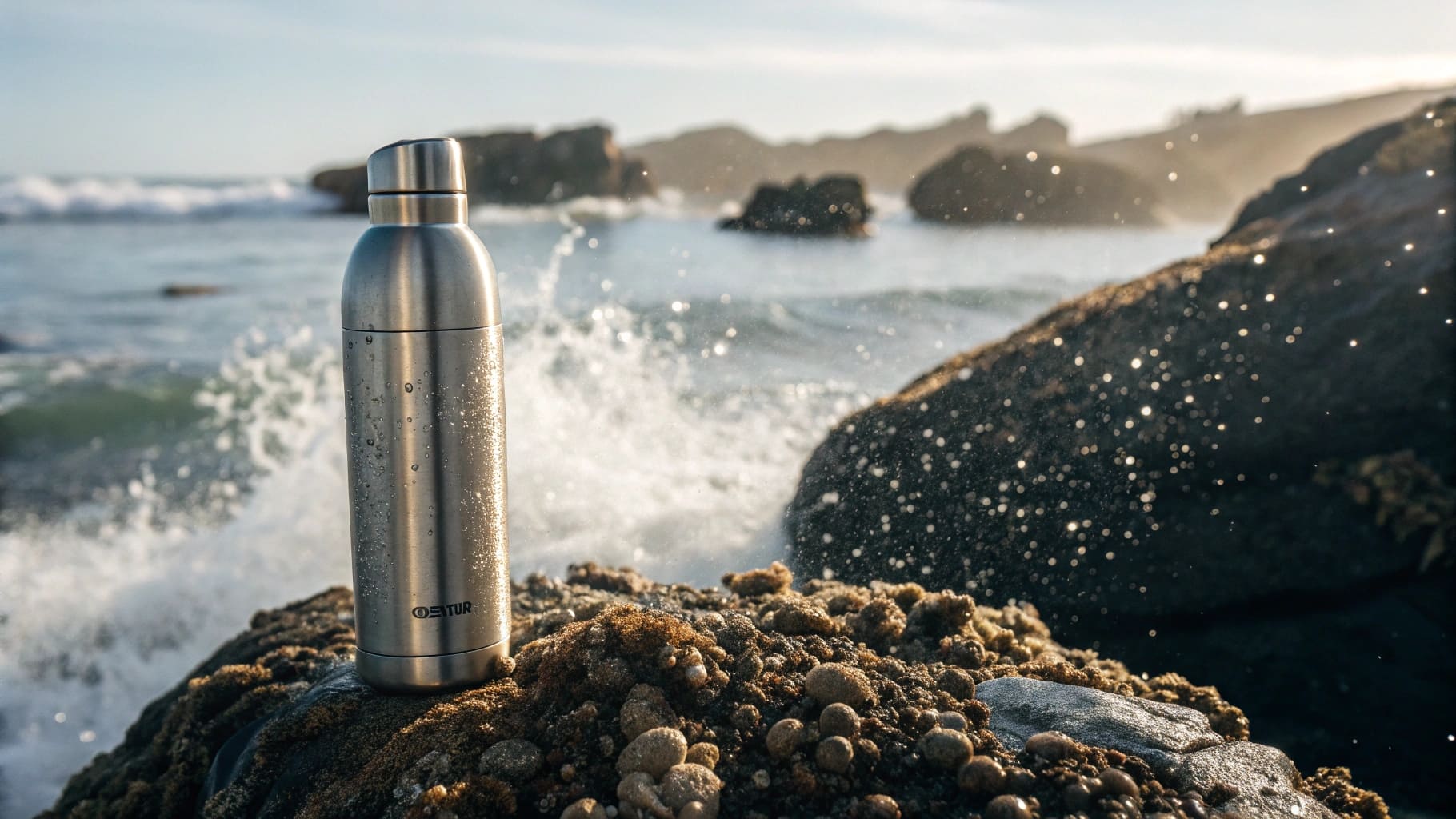Tired of lukewarm drinks and leaky bottles? Finding the perfect insulated bottle can be tricky. We're here to help you choose wisely for lasting satisfaction.
The best insulated steel bottle for you depends on your specific needs. For daily use, an 18/8 stainless steel bottle with double-wall vacuum insulation is a top choice. It keeps drinks at the right temperature for hours, is durable, and safe.

Choosing the right insulated bottle can seem overwhelming with so many options out there. But don't worry, I'm here to break it down for you. As someone who has been in the stainless steel bottle business for years with Icobottle, I've seen it all. I want to share my insights so you can make an informed decision, whether you're buying for yourself or sourcing products for your business, like my friend Mark in Canada. Mark knows the importance of quality for his customers, and that starts with choosing the right materials and features. Let's dive into what makes a great insulated steel bottle so you can find the perfect match.
What Is The Best Metal Water Bottle?
Struggling to pick a metal bottle that's safe and durable? Many metals can affect taste or aren't built to last. Choose stainless steel for peace of mind.
For overall performance, 18/8 (or 304) stainless steel is generally the best. It's tough, resists rust, and doesn't leave a metallic taste, making it ideal for water and most beverages. This ensures your customers, like Mark's, get a quality product.

When we talk about the "best" metal water bottle1, we're really looking for a balance of safety, durability, and performance. I've handled countless samples and seen firsthand how different materials stack up. For my business, Icobottle, and for clients like Mark who prioritize quality for their rebranding efforts, stainless steel, specifically 18/8 food-grade, consistently comes out on top.
Why Stainless Steel Shines
Stainless steel isn't just one material; there are different grades.
- 18/8 (304) Stainless Steel: This is the workhorse of the food and beverage industry. The "18/8" refers to its composition of 18% chromium and 8% nickel. This blend gives it excellent rust resistance and makes it very durable. It won't leach chemicals into your drink, and it doesn't hold onto old flavors. You can have coffee one day and water the next without any lingering taste. This is crucial for us at Icobottle when we customize bottles with logos and colors for businesses.
- 316 Stainless Steel2: This is a step up in corrosion resistance, thanks to the addition of molybdenum. If you plan to use your bottle in very harsh conditions, like near saltwater, or for very acidic or alkaline drinks, 316 offers extra protection. It's generally more expensive, so it's more of a specialized option. I remember a client who ran a boating tour company; for them, 316 was worth the investment.
Here's a simple comparison:
| Feature | 18/8 (304) Stainless Steel | 316 Stainless Steel | Other Metals (e.g., Aluminum) |
|---|---|---|---|
| Primary Use | Everyday, general beverages | Harsher environments | Varies, often lined |
| Corrosion Resist. | Good | Excellent | Can corrode, may leach |
| Durability | Very Good | Very Good | Softer, dents easier |
| Flavor Neutral | Yes | Yes | Can impart taste |
| Cost | Moderate | Higher | Varies |
While materials like glass are non-reactive, they aren't as durable as stainless steel. For a combination of safety, toughness, and keeping your drink pure, stainless steel is hard to beat. This is why procurement officers and startup bosses often specify it.
What Type Of Bottle Is Best For Drinking Water?
Worried about chemicals in your water or lingering tastes? Plastic bottles can leach and retain odors. A stainless steel bottle ensures pure, fresh-tasting water every time.
For drinking water, an 18/8 (304 grade) stainless steel bottle3 is excellent. It's hygienic, durable, doesn't hold onto odors or flavors, and is often BPA-free, ensuring your water tastes clean and stays safe.

When it comes to something as essential as drinking water, the container you use matters a lot. At Icobottle, we always recommend stainless steel, especially the 18/8 food-grade type. This isn't just a preference; it's based on proven benefits for health and taste. Mark, my client in Canada, specifically looks for this grade because his customers expect a premium, safe product when they buy his rebranded bottles.
Keeping Your Water Fresh and Safe
Let's look at why stainless steel is ideal for water.
- Hygienic and Easy to Clean: Stainless steel has a non-porous surface. This means bacteria and germs have a harder time sticking around. It's also easy to wash thoroughly, either by hand or, for many models, in a dishwasher. I always tell my clients, a clean bottle means clean-tasting water.
- No Odors or Flavors: One of the biggest complaints I hear about other bottle types, especially some plastics, is that they hold onto smells or the taste of previous drinks. Imagine your water tasting faintly of yesterday's juice – not pleasant! Stainless steel doesn't have this problem. Your water will taste like water, pure and simple. I once switched from a plastic bottle that always made my water taste funny to a stainless steel one, and the difference was night and day.
- BPA-Free for Health4: Bisphenol A (BPA) is a chemical that was commonly used in plastics and can have health concerns. Most quality stainless steel bottles are naturally BPA-free. When sourcing bottles for Icobottle, we ensure all our products meet this standard. This is a key selling point for health-conscious consumers.
- Look for Certifications: To be extra sure about safety, look for certifications like FDA (U.S. Food and Drug Administration) or LFGB (German Food and Commodities Act). These indicate the materials used are food-grade and safe for contact with beverages. For Mark, who exports to North America, FDA compliance is a must. These certifications give his customers, and yours, peace of mind.
Here’s a quick checklist for a great water bottle:
| Feature | Importance for Drinking Water | What to Look For |
|---|---|---|
| Material | Prevents chemical leaching, ensures pure taste | 18/8 (304) Stainless Steel |
| Hygiene | Keeps water clean and safe | Non-porous, easy to clean |
| Flavor Neutral | Ensures water tastes like water | Stainless steel |
| Safety | Avoids harmful chemicals | BPA-Free |
| Certifications | Verifies material safety | FDA, LFGB, or equivalent |
Choosing a good stainless steel bottle is an investment in your health and hydration. It's about enjoying fresh water without any unwanted extras.
How Do I Choose The Best Insulation?
Frustrated with cold coffee or warm water just hours after filling your bottle? Poor insulation defeats the purpose. Opt for double-wall vacuum technology for superior temperature retention.
The most effective insulation for steel bottles is double-wall vacuum insulation. This creates a barrier that significantly reduces heat transfer, keeping drinks hot or cold for extended periods. Look for this feature for best results.

Insulation is where a good steel bottle becomes a great one. It's the magic that keeps your coffee steaming hot on a cold morning or your water refreshingly cold during a summer hike. As a manufacturer, we at Icobottle pay close attention to insulation technology because it's a key factor for customer satisfaction. Mark, who buys wholesale from us, knows that good insulation is a major selling point for his rebranded bottles in Canada.
Understanding Insulation Technology
Let's break down what makes for the best insulation:
- Double-Wall Vacuum Insulation: This is the gold standard. Imagine two layers of stainless steel with a near-vacuum space between them. Air is a conductor of heat, so removing most of the air drastically slows down heat transfer (whether it's heat escaping from a hot drink or heat entering a cold one). This is why a good vacuum-insulated bottle can keep drinks hot for, say, 12 hours or cold for 24 hours. When I first tested one of our new designs, I left iced water in it overnight, and it was still icy the next afternoon. I was genuinely impressed!
- Copper Lining (Optional Enhancement): Some high-end bottles include a thin copper layer on the inner wall, within the vacuum space. Copper is an excellent conductor of heat. In this context, it helps to reflect thermal radiation and distribute temperature more evenly inside the bottle, which can give an extra boost to insulation performance, especially for hot beverages.
- Quality of the Vacuum Seal: The manufacturing process is crucial here. A poorly sealed vacuum won't last, and the bottle's insulating properties will degrade over time. This is one of those "you get what you pay for" situations. Reputable manufacturers like us at Icobottle have strict quality control to ensure a perfect, durable seal. This is a key point for procurement officers; a cheaper bottle might fail inspection or lead to customer complaints later.
- No Condensation: A well-insulated bottle should not "sweat" or form condensation on the outside when filled with a cold drink. The vacuum layer prevents the outer wall from getting cold, so moisture from the air doesn't condense on it. This keeps your hands and bag dry and makes the bottle easier to grip.
Here’s what to consider when evaluating insulation:
| Insulation Feature | How It Works | Benefit | What to Check |
|---|---|---|---|
| Double-Wall Vacuum | Air removed between two steel layers | Significantly slows heat transfer | Standard feature in good insulated bottles |
| Copper Lining | Reflects thermal radiation, evens out temperature | Can improve temperature retention | Often highlighted as a premium feature |
| Seal Quality | Ensures the vacuum is maintained long-term | Consistent, long-lasting insulation performance | Manufacturer reputation, warranty (if available) |
| Manufacturer Claims | Stated hours for hot/cold retention | Gives an idea of performance | Look for realistic claims, read reviews |
| No Condensation | Outer wall stays at ambient temperature | Dry to touch, no mess | Test with a very cold drink if possible |
For someone like Mark, whose business relies on the quality of the bottles he sells, understanding these insulation details is vital. It helps him address technical questions from his customers and choose products that truly perform.
Conclusion
Choosing the right insulated steel bottle comes down to understanding material, water safety, and insulation type. Opt for quality stainless steel and vacuum insulation for the best experience.
-
Discover essential factors to consider for selecting the best metal water bottle for your needs. ↩
-
Learn why 316 stainless steel is preferred for extreme conditions, offering superior corrosion resistance. ↩
-
Explore the advantages of 18/8 stainless steel bottles for health and taste, ensuring your hydration is safe and enjoyable. ↩
-
Learn about the health risks associated with BPA and why opting for BPA-free bottles is crucial for your well-being. ↩

